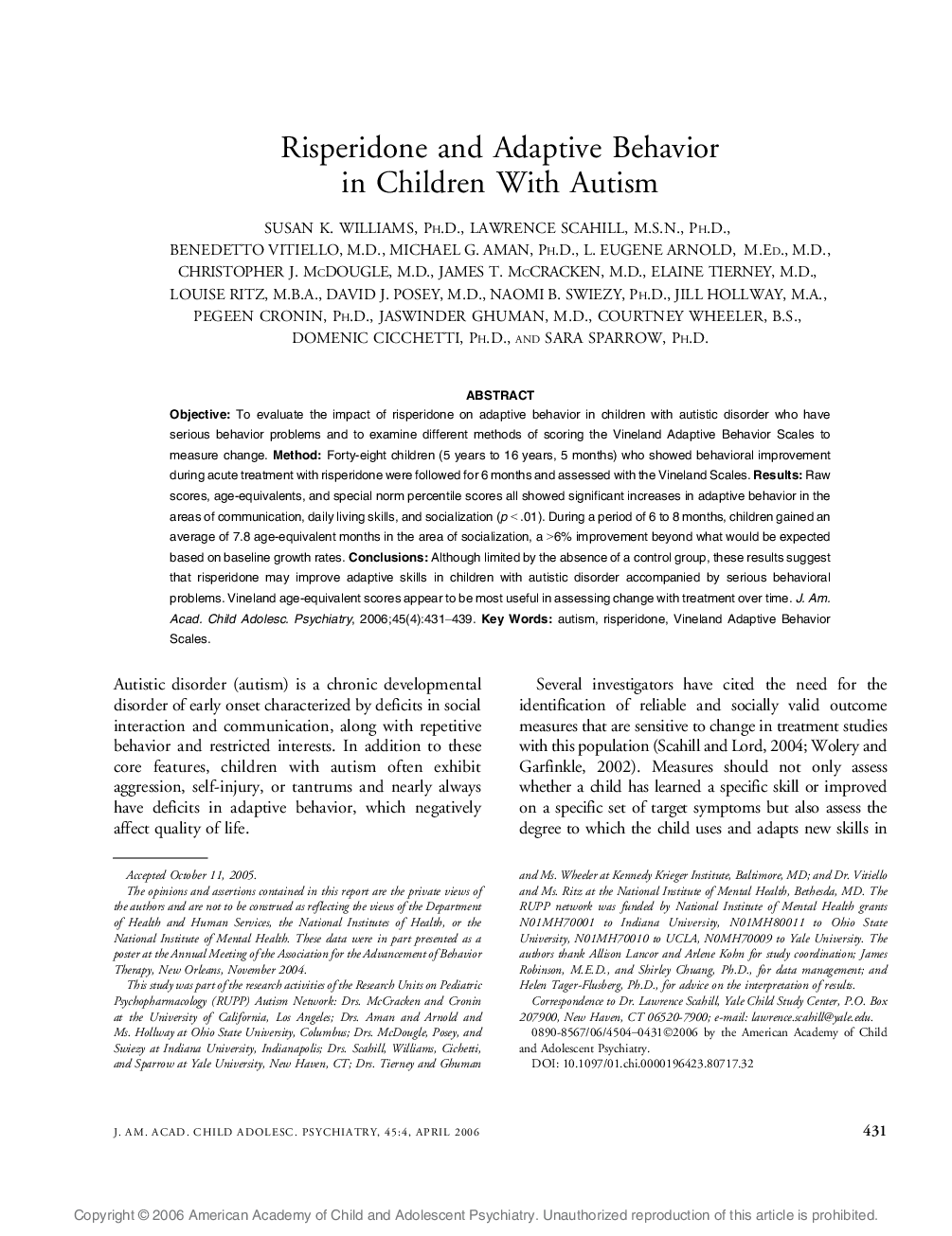| Article ID | Journal | Published Year | Pages | File Type |
|---|---|---|---|---|
| 325118 | Journal of the American Academy of Child & Adolescent Psychiatry | 2006 | 9 Pages |
ABSTRACTObjectiveTo evaluate the impact of risperidone on adaptive behavior in children with autistic disorder who have serious behavior problems and to examine different methods of scoring the Vineland Adaptive Behavior Scales to measure change.MethodForty-eight children (5 years to 16 years, 5 months) who showed behavioral improvement during acute treatment with risperidone were followed for 6 months and assessed with the Vineland Scales.ResultsRaw scores, age-equivalents, and special norm percentile scores all showed significant increases in adaptive behavior in the areas of communication, daily living skills, and socialization (p <.01). During a period of 6 to 8 months, children gained an average of 7.8 age-equivalent months in the area of socialization, a >6% improvement beyond what would be expected based on baseline growth rates.ConclusionsAlthough limited by the absence of a control group, these results suggest that risperidone may improve adaptive skills in children with autistic disorder accompanied by serious behavioral problems. Vineland age-equivalent scores appear to be most useful in assessing change with treatment over time. J. Am. Acad. Child Adolesc. Psychiatry, 2006;45(4):431-439.
